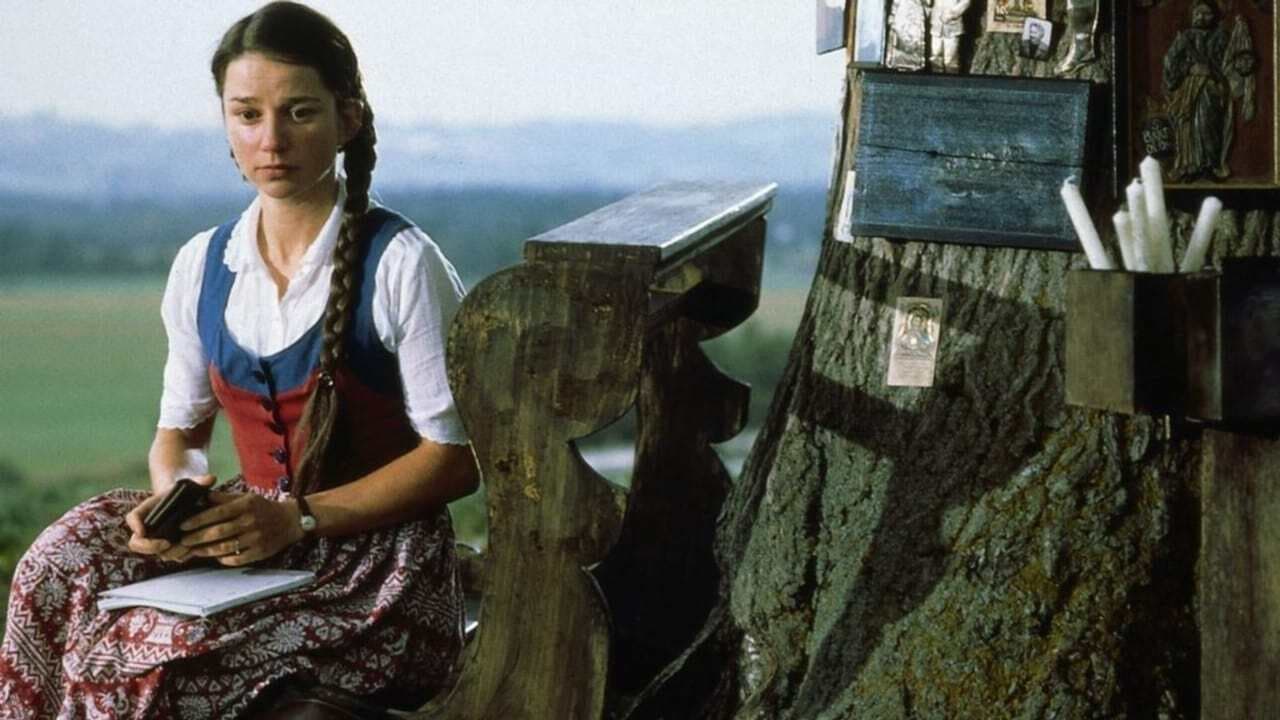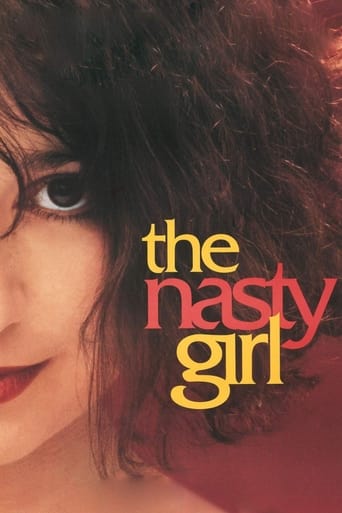GamerTab
That was an excellent one.
Senteur
As somebody who had not heard any of this before, it became a curious phenomenon to sit and watch a film and slowly have the realities begin to click into place.
Edwin
The storyline feels a little thin and moth-eaten in parts but this sequel is plenty of fun.
Wyatt
There's no way I can possibly love it entirely but I just think its ridiculously bad, but enjoyable at the same time.
goodellaa
The reviewers do not exaggerate, this really is a fine movie. Don't let the subtitles stop you. Lead actress gives a very fine performance as a woman who grows up in a nice, funny town full of basically good people who lived under the Nazis during Hitler's rule. As she grows and studies the world around her she discovers hints of past and present that were not obvious at first. Let us just say that life under the Nazis absolutely required compromise that could amount to dreadful criminal activity by any civilized standard, and old influences die hard. This woman becomes the catalyst of social change and historic preservation, driving herself to the brink of madness and risking her life in the process. This movie is great fun anyway. The fun humor and joy of life never quite go away, even when events turn dramatic and dangerous. I just can't say enough about the artistry and skill that went into this movie. If you see it and you grew up in a town populated by fallible human beings you may feel charged up by the breathtaking emotional ride toward a better world.
robert-temple-1
This is a magnificent film by Michael Verhoeven. I saw it when it came out years ago, and have just seen it again. It certainly holds up and if anything is more powerful now. The film contains one of the most astonishing performances by an actress I have ever seen. Lena Stolze plays the character Sonja from the age of 16 through to adulthood. How did she do it? She was already far from her teens when she played the cutest 16 year-old with pigtails and the innocent eyes of a child. Her whimsy and her manner made her perfect for this difficult part, and her success made the film work. The film itself was done in an equally whimsical manner, not troubling in many cases to use real sets or locations, but with a remarkable lightness of touch and confidence of technique, in many cases settling for set-ups of a theatrical nature, and the film is interspersed with pieces to camera by numerous characters. It sounds a mess, but it isn't, and it all holds together and works perfectly. Apart from the control kept over it by the director, this technique is successful because it accentuates the irony of the subject. And that subject is so troubling to all potential viewers, going as it does far beyond blindness to past Nazi activities, that if it were laid on heavy, it would not be accepted, because it would be perceived as an attack on everybody. But it is actually an attack on everybody, because the film seeks to expose a faultline in human nature of our tendency to conspire to forget, conspire not to see, and conspire to falsify reality. This hairline crack in human nature is a tendency to form what I call 'consensus reality', which is generally a shared fantasy in which we all agree to believe because it makes us feel better. The character Sonja in this film (based upon a real girl named Anja who actually had similar experiences) challenges consensus reality. And of course, she was attacked by absolutely everyone, her husband abandoned her, she was beaten, bombed, ostracised, and persecuted mercilessly for years. Her only 'crime' was to try to discover the story of her home town in Bavaria during the Nazi period. The fact is that just about everybody living in Germany during that period was seriously compromised, there were few heroes (despite the many claims of heroism which came after the War), and the majority of Germans actually approved of and supported the Nazis. One should never forget that Hitler was ELECTED. One can perhaps explain phenomena like the rise of Nazism by temporary insanity of a nation, but the nasty and despicable aftermath cannot be so explained. It is pure animal behaviour of the most revolting kind. The post-War behaviour of the Germans was in this sense even more offensive than their wartime behaviour. But they are not alone, nor are they worst in this tendency. After all, the Japanese still refuse to apologise for the War, and make offerings at shrines to 'war heroes' who were guilty of war crimes. Compared to that, the Germans are pussycats, they apologised long ago, and the younger generations have long since atoned and 'reformed'. If anyone tried even now to make a film like this about Japan, they would probably be killed by a raging mob. So put that in your meerschaum pipe and smoke it.
zolaaar
Based on real events around a student who, in the 80s, worked of the Nazi past of a Bavarian town and hence got torpedoed by the local regulars and authorities. Verhoeven stages his film with recourse on many alienating stylistic devices to not convey the impression of a mere narration or, by implication, of a documentary. Lena Stolze's, the 'nasty girl', speech directly to the audience is part of it, as well as the effect of an obvious rear projection of the municipal archive while we see the actors performing on stage around a desk. Furthermore, Verhoeven's consistency in sharpening the criticism on the German bourgeoisie is remarkable at the time of the nation's reunion when skeptical and 'unpatriotic' words weren't particularly popular. The overall effect of it is not the exposure of a concealed guilt, but the presentation of a disconcerting as well as funny permanent embarrassment, because we witness both: the knowledge and the laborious acts of ignorance. The mulishness of the girl might be a little infantile, because she hasn't put up with reality yet - and probably never will. But really childish and stubborn and therefore dangerous are all those authorities who try to block her search for truth all the time. In any way, it's a succeeded satire walking in the shoes of Valentin, Tucholsky and Brecht, exposing German hypocrisy to ridicule and putting fingers on apparently still open sores.
Lee Eisenberg
Sonja (Lena Stolze) seems like any ordinary person. That is, until she has to research her town's history for a project. In the process, she discovers that her town was heavily involved in the Third Reich. Then, everyone in town not only turns against her, but tries in every possible way to silence her.Much like another West German film ("The Lost Honor of Katharina Blum"), "The Nasty Girl" shows a woman used as a scapegoat for something that was society's fault (it makes sense for German movies to deal with that; it's exactly what the Third Reich was all about). Another one of Germany's solid masterpieces.Watching this movie, I couldn't help but wonder what sorts of secrets any place, anywhere on Earth, carries.

